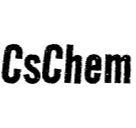Water treatment chemicals are essential for maintaining clean and safe water in various applications, including drinking water, wastewater treatment, and industrial processes. These chemicals are used to remove contaminants, neutralize harmful substances, and prevent the growth of bacteria and algae. Some common water treatment chemicals include:
- Chlorine: Used for disinfection and killing harmful microorganisms in water.
- Alum (Aluminum Sulfate): Acts as a coagulant to remove suspended particles by clumping them together for easy removal.
- Flocculants: Help in aggregating fine particles into larger clusters, making it easier to filter them out.
- Sodium Hypochlorite: A disinfectant often used in swimming pools and municipal water systems.
- Antiscalants: Prevent the formation of scale deposits in water systems and equipment.
- pH Adjusters: Chemicals such as lime or sodium bicarbonate used to maintain the desired pH level of water.
- Corrosion Inhibitors: Protect pipes and equipment from corrosion caused by water.
- Ozone: An alternative disinfectant to chlorine, effective in killing bacteria and viruses.
- Activated Carbon: Used for removing organic compounds, chlorine, and odors from water.
- Biocides: Prevent the growth of bacteria and algae in cooling towers and other industrial water systems.
Proper use and handling of these chemicals are crucial for ensuring the effectiveness of water treatment processes while minimizing environmental impact.
